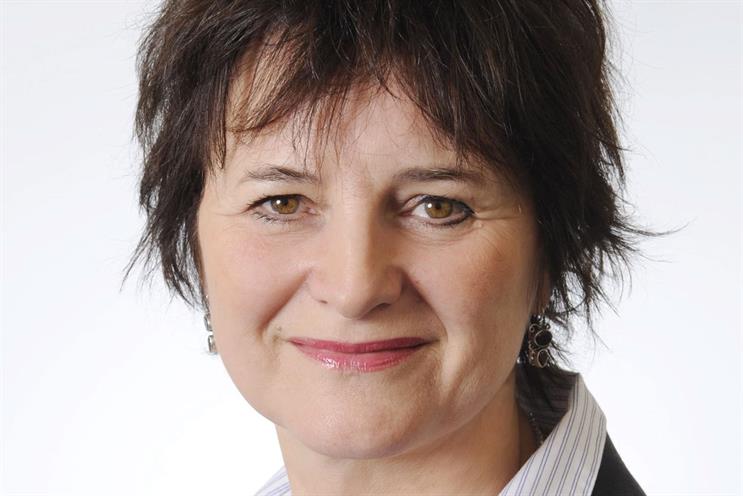
According to new IPA research, the alarming decline in ad effectiveness from its 2009 peak is directly connected to the tight grip that short-termism now has on the marketing industry. It’s certainly a bleak picture that has been painted by the report’s authors, Peter Field and Les Binet.
Whether or not the gloom has been overdone is a matter of debate. "It’s an impressive body of learning and all credit to the IPA for having done it," an agency chief remarks. "But it mustn’t be forgotten that the IPA has an axe to grind" – an interest in promoting sustained investment by clients in paid-for media.
Field says he and Binet are just telling it as they have found it. "Our work has been well-researched and well-vetted by experts," he says. "I certainly have no axe to grind."
Based on an analysis of some 500 case studies entered into the IPA Effectiveness Awards, the research suggests, on average, 47% of a communications budget is currently devoted to short-term activation strategies. This compares with 31% in 2014.
The authors say short-termism isn’t necessarily bad but that there is now an overemphasis on it as marketers veer from one strategy to another rather than exploiting the accumulated learning about their brands.
Field and Binet claim a reliance on owned and earned media alone isn’t the answer and brands using paid media typically grow three times faster.
Field and Binet claim a reliance on owned and earned media alone isn’t the answer and brands using paid media typically grow three times faster. The most effective strategy for brands will involve TV and online video working in tandem with new digital media, they argue.
Janet Hull, the IPA’s director of marketing strategy, (pictured above) says, "Here lies the proof that the digital transformation has helped make mass media work even harder. It also proves that while it is good to have earned and owned media, for top-line growth brands must invest in paid-for, mass reach."
This is just what was happening before the effects of the global financial crisis kicked in. Since then, there is a temptation to go after what one marketing expert calls "the low-hanging fruit".
The fact that there are more ways to generate instant sales than ever has led brand owners to think they can target consumers much more tightly and to question why they should bother with paid-for media. But as one senior marketer points out, "You need to be focusing on your brand in the round, not on the number of ‘likes’ and click-through rates."
Such pressure to deliver has undermined long-term brand building, the researchers suggest. A new breed of marketers who have little experience beyond the digital domain has only compounded the problem, they believe.
At the moment, the consensus is that short-termism will be a long-term phenomenon. "Nothing will change until businesses realise they have to deliver long-term growth," Field warns. "The hope must be that when one does so others will follow. At present, we’re going through a very destructive phase."
 Consultant
Consultant
Peter Field, marketing consultant
"Short-term thinking is the result of a perfect storm of events. The global financial crisis is putting pressure on general management, which, in turn, is putting pressure on marketing.
"The trouble is that general management doesn’t necessarily understand that short-term marketing undermines long-term strategy. That has coincided with a new generation of marketers that has only worked in the digital world.
"I fear short-termism is here for the foreseeable future. The economy is a factor but it’s also because so many people believe they can get away with it. And because activation messages tend to be information based, I fear creativity will be dragged down along with it."
 Agency head
Agency head
Camilla Harrisson, chief executive, Anomaly
"There’s a difference between short-termism and doing something that’s going to damage your brand’s future. The most important thing is being relevant to consumers in the fast paced world in which we live.
"Not many clients are interested only in the long term. They have to generate shareholder value here and now. What’s more, we have the ability to measure the success of what we do very quickly.
"The most important thing is to have a robust long-term brand strategy that allows you to benefit from short-term opportunities. Creativity and effectiveness and acting opportunistically are not mutually exclusive."
 Marketer
Marketer
Amanda Mackenzie, chief executive, Business in the Community; former chief marketing and communications officer, Aviva
"The fact that ad effectiveness is falling doesn’t surprise me in the least and well done to the IPA for raising the issue.
"A lot of it is down to the system of quarterly reporting, which causes marketers to focus on short-term business and take their eye off the bigger picture.
"It’s also important that chief marketing officers are careful not to fall for the allure of the next new thing, that they learn from the massive amounts of data that they now have and that they listen to the voices of their most experienced people."
 Agency head
Agency head
Charles Vallance, founding partner, VCCP
"The IPA research doesn’t suggest that short-termism is getting worse, only that the problem remains the same. There are no shortcuts to building brand value but, because there are more short-term levers than there ever were, people are convinced that they can now micro-target more effectively.
"Also, there are times when direct response and sales activation are necessary for a brand. It’s just a question of getting the balance right. The fundamentals of brand building remain the same.
"That said, company chief executives and financial directors are becoming much more alert to these issues. The more enlightened ones will see the chief marketing officer as an ally."

